The peak period of DUE rush at the University of Sydney always comes so early. Only four weeks after the start of school, the library is already full of DUE rushers.
In the face of the upcoming large-scale writing tasks, many students came up with the idea of ChatGPT.
In November 2022, the artificial intelligence (AI) tool ChatGPT ("Chat Generative Pre-Trained Transformer") was released by OpenAI, and excitement on social media soon followed.
However, not everyone accepted its release. The NSW Department of Education and other regions took swift action to ban its use in schools, and the discussion of ChatGPT among international students only increased.
As UNSW issued an official email statement prohibiting students from using ChatGPT , USYD students are of course very concerned about their school's attitude towards ChatGPT.
So, today we will take a look at what impact ChatGPT has on international students, and how you should use this artificial intelligence tool~
Part 1 "School Attitude"
As a plagiarism checking tool used by most schools, Turnitin makes many students feel anxious every time they hand in their homework.
No, the company has also launched an AI detection function to detect academic integrity violations such as the use of ChatGPT.
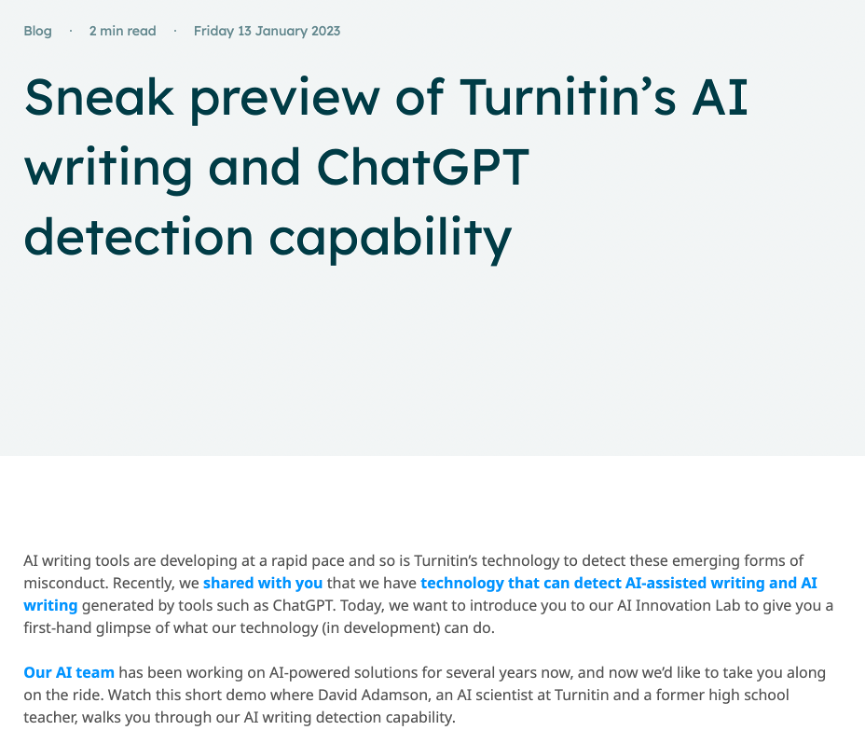
However, since this technology is still immature, universities can voluntarily choose whether to use this technology, and the University of Sydney has indicated that it will not use this new feature at present.
Although the school has not issued a formal official email statement to completely prohibit students from using ChatGPT, the discussion of ChatGPT among the school's teaching staff has been going on.
For example, Lia Perkins, chairman of the USYD Student Representative Committee, stated on her social media that she does not support the school's current use of turnitin's AI detection function to avoid students' time-consuming and laborious revision of articles due to false positives.
"Schools should focus on teaching and supporting, preventing the erosion of academic integrity, and teaching students how to use new technology as a tool, not as a substitute for learning academic skills."
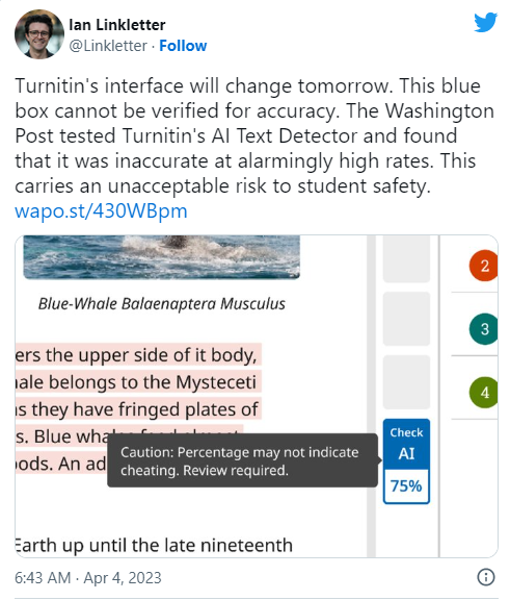
The University of Sydney's medical school has also done the opposite, directly telling students that they can use ChatGPT to complete their dissertations , and their first assignment this semester is completed using ChatGPT.
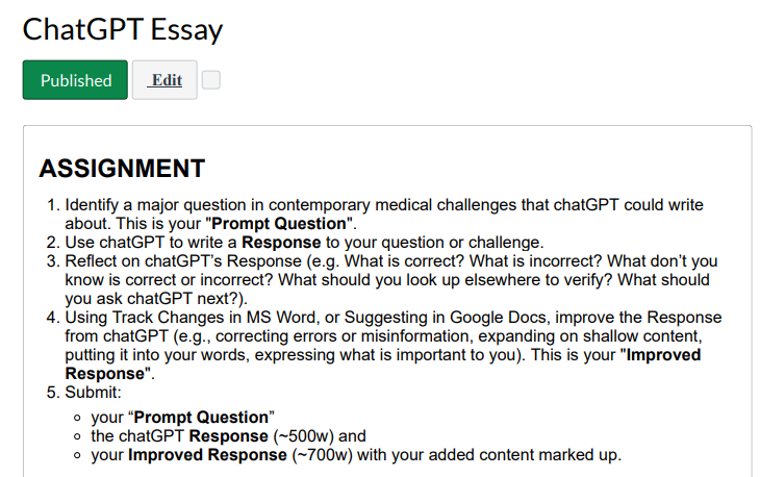
Martin Brown, the tutor of the Contemporary Medical Challenges of the medical school course, believes that it is impossible to ignore the existence of ChatGPT, so it might as well make it part of the course.
This assignment asks students to ask a question about a challenge in contemporary medicine and asks ChatGPT to write an essay on it. The students were asked to read the papers written by the AI and edit them again, observe the changes before and after, and submit the final draft.
Martin Brown said the assignment was meant to test students' judgment and creativity, as these were skills they would need in their careers, rather than simply organizing information.
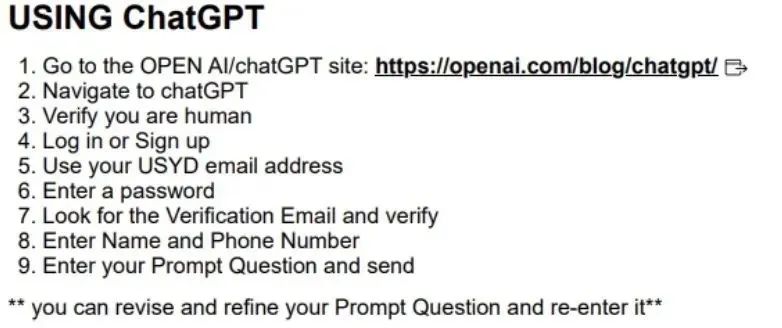
In addition, the tutor of the University of Sydney's project management major also expressed support for students to learn to use ChatGPT: it is acceptable to use AI to complete assignments in some specific assignments, as long as they declare in the assignment and write their own understanding and logic.
Part 2 "How to use ChatGPT effectively"
On February 28 this year, the University of Sydney also published an article on the website, the main content is how to use ChatGPT in the university to save time and improve learning efficiency.
Much of the current panic has focused on ChatGPT's ability to produce finished papers, but it can be used to create new learning opportunities. This article from the school lists a few ways to use ChatGPT :
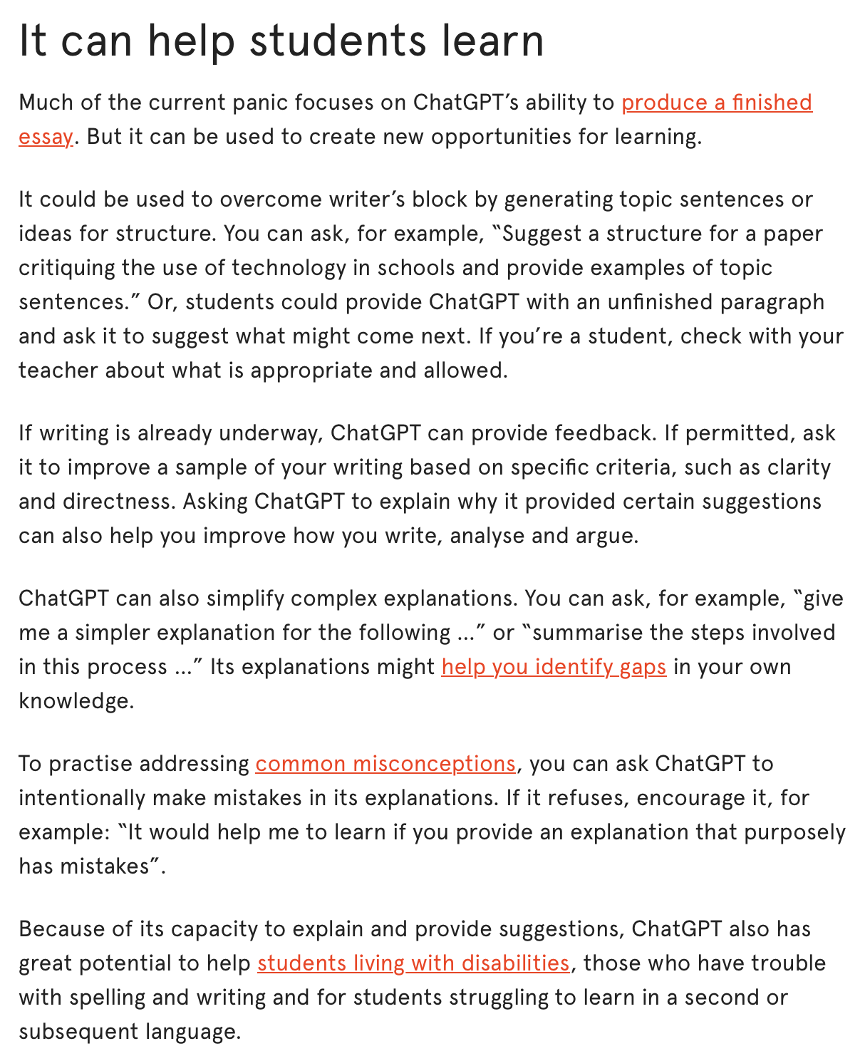
It can overcome writing blocks by producing topic sentences or structures.
For example, you could ask: "Suggest a structure for an essay criticizing the use of technology in schools and provide examples of topic sentences". Or you can feed ChatGPT an unfinished paragraph and ask it to suggest what might come next
If writing has already started, ChatGPT can provide feedback.
If allowed, ask it to improve your writing sample according to specific criteria, such as clarity and directness. Asking ChatGPT to explain why it provides certain suggestions can also help you improve the way you write, analyze and argue.
ChatGPT can also simplify complex explanations.
For example, you could ask: "Give me a simpler explanation..." or "Summary of the steps in this process..." Its explanation may help you find out what you know difference.
To practice resolving common misconceptions, you can ask ChatGPT to deliberately err in its interpretations. If it rejects, encourage it, e.g. "If you provide an explanation that is intentionally wrong, it will help me in my learning".
In general, ChatGPT can help you provide writing ideas, sort out writing ideas, find academic literature, extract key content of literature, and then help you with accurate and smooth translation, paper polishing, and reduce duplicate checks...
It can be said that almost all the steps in the process of writing a thesis can be automatically completed by ChatGPT as long as we find a reasonable method and input accurate instructions.
Since it is unavoidable, it is better to learn how to better use AI to feed back education and academics . We may find that in the process of training it to write papers , we can learn more than we can learn from writing a paper ourselves.
In any case, returning tools to tools and making us better us may be the best way to conduct academic research in the age of AI.